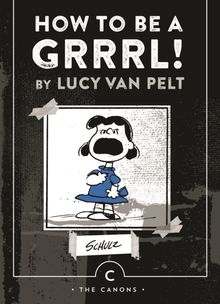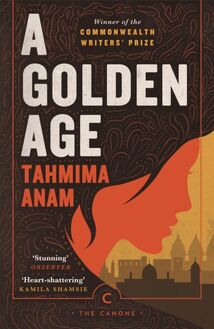The Outrun , livre ebook
136
pages
English
Ebooks
2015
Vous pourrez modifier la taille du texte de cet ouvrage
Obtenez un accès à la bibliothèque pour le consulter en ligne En savoir plus
Découvre YouScribe en t'inscrivant gratuitement
Découvre YouScribe en t'inscrivant gratuitement
136
pages
English
Ebooks
2015
Vous pourrez modifier la taille du texte de cet ouvrage
Obtenez un accès à la bibliothèque pour le consulter en ligne En savoir plus
Publié par
Date de parution
31 décembre 2015
Nombre de lectures
0
EAN13
9781782115496
Langue
English
Poids de l'ouvrage
2 Mo
Publié par
Date de parution
31 décembre 2015
Nombre de lectures
0
EAN13
9781782115496
Langue
English
Poids de l'ouvrage
2 Mo
Amy Liptrot is the author of The Outrun , which was a Sunday Times bestseller. She writes columns and reviews for various magazines and newspapers including the Guardian and the Spectator , and recently presented the BBC Radio 4 series The New Anatomy of Melancholy . The Outrun was awarded the Wainwright Prize and the PEN Ackerley Prize, and was shortlisted for the Wellcome Prize and the Ondaatje Prize. It was a BBC Radio 4 Book of the Week and featured on the BBC Radio 2 Book Club. The Instant was a Sunday Times bestseller, and was shortlisted for the Wainwright Prize. @amy_may | @amymayyyy
Also by Amy Liptrot The Instant
The paperback edition published in Great Britain and Canada in 2024 by Canongate Books First published in Great Britain in 2016 by Canongate Books Ltd,
14 High Street, Edinburgh EH1 1TE Distributed in Canada by Publishers Group Canada
canongate.co.uk
This digital edition first published in 2016 by Canongate Books
Copyright © Amy Liptrot 2016 Extract from The Instant © Amy Liptrot 2022
The moral right of the author has been asserted
British Library Cataloguing-in-Publication Data
A catalogue record for this book is available on request from the British Library
ISBN 978 1 80530 112 7 e ISBN 978 1 78211 549 6
CONTENTS
GLOSSARY
PROLOGUE
1
THE OUTRUN
2
TREMORS
3
FLOTTA
4
LONDON FIELDS
5
NIGHTBIKE
6
FLITTING
7
WRECKED
8
TREATMENT
9
DRIFTING
10
DYKING
11
AMBERGRIS
12
ABANDONED ISLANDS
13
LAMBING
14
THE CORNCRAKE WIFE
15
ROSE COTTAGE
16
PAPAY
17
MERRY DANCERS
18
NORTH HILL
19
ONLINE
20
SEA SWIMMING
21
THE HOLM
22
PERSONAL GEOLOGY
23
TRIDUANA
24
FAIR ISLE
25
BONFIRE
26
UNDERSEA
27
STRANDINGS
28
RENEWABLES
ACKNOWLEDGEMENTS
EXTRACT FROM THE INSTANT
‘ON BEING ADAPTED’
GLOSSARY
bonxie: great skua
burn: stream
byre: barn
caddie lamb: orphan lamb, reared by bottle
clapshot: mashed mixed neeps and tatties
dyke: drystone wall
geo: narrow inlet of sea in cliffs
grimlins: midsummer night sky
haar: sea fog
hillyans: mythical hill folk
holm (pr. ‘home’): offshore islet
kirk: church
kye: cattle
lum: chimney
lum reekin: chimney smoke
Merry Dancers: Northern Lights
midden: muck heap
muckle: big
neep: turnip
noust: hollow for storing small boats
peedie: small
selkie: seal
spoot: razor clam
steamer: ferry boat steamin’/blazin’/guttered: drunk
steeves: stone structures for building stooks
stooks: stacks of grain
swappin’ for auks: hunting seabirds
tangles: seaweed
tattie: potato
trows/trowies: trolls
teeicks: lapwings
tystie: black guillemot
whaups: curlews
yole: simple boat
PROLOGUE
UNDER WHIRRING HELICOPTER BLADES , a young woman holds her newborn baby as she is pushed in a wheelchair along the runway of the island airport to meet a man in a straitjacket being pushed in a wheelchair from the other direction.
That day, the two twenty-eight-year-olds had been treated at the small hospital nearby. The woman was helped to deliver her first child. The man, shouting and out of control, was restrained and sedated.
Orkney – a group of islands at the north of Scotland, sea-scoured and wind-battered, between the North Sea and the Atlantic – has a good provision of services: hospital, airport, cinema, two secondary schools, a supermarket. One thing it does not have, however, is a secure unit for people certified mentally ill and a danger to themselves and others. If someone is sectioned under the Mental Health Act, they have to be taken south to Aberdeen.
Seen from above, from an aircraft carrying oil workers out to a rig or mail bags from mainland Scotland, the airport runway is a jolt on the open, treeless landscape. Regularly closing for days during high winds or sea fogs, it’s where the daily drama of leaving and return is played out under air-traffic control, among the low-lying isles and far-reaching skies.
This May evening, as daisies shut their petals for the night, guillemots and kittiwakes return to the cliffs with sand eels for their chicks, and sheep shelter beside drystone dykes – it is my story’s turn to unfold. As I arrive into this island world, my father is taken out of it. My birth, three weeks early, has brought on a manic episode.
My mum introduces the man – my dad – to his tiny daughter and briefly places me in his lap before he is taken into the aircraft and flown away. What she says to him is covered by the sound of the engine or carried off by the wind.
I
THE OUTRUN
ON MY FIRST DAY BACK I shelter beside an old freezer, down by some stinging nettles, and watch the weather approach over the sea. The waves crashing do not sound very different from the traffic in London.
The farm is on the west edge of the main and largest island in Orkney, on the same latitude as Oslo and St Petersburg, with nothing but cliffs and ocean between it and Canada. As agricultural practices changed, new buildings and machinery were added to the farm but the old sheds and tools remain, corroding in the salty air. A broken tractor shovel acts as a sheep trough. Stalls where cattle were once tied are now filled with defunct machinery and furniture that used to be in our house. In that byre I strung a rope swing from the rafters, and hung backwards by my knees over a gate that’s now rusting into the ground.
To the south, the farm stretches along the shore to sandier land, which becomes the Bay of Skaill, a mile-long beach where the Stone Age village, Skara Brae, sits. To the north, the farm follows cliffs up to higher ground where heather grows. Each field has a prosaic name: ‘front field’, as you come up the track to the house; or ‘lambing field’, sheltered on all sides by drystone dykes. The largest of the fields, the ‘Outrun’, is a stretch of coastland at the top of the farm where the grass is always short, pummelled by wind and sea spray year-round. The Outrun is where the ewes and their lambs graze in summer after they are taken up from the nursery fields. It’s where the Highland cattle overwinter, red and horned, running out under the huge sky.
Some historical agricultural records list farmland in two parts: the ‘in-bye’ arable land, close to the farm steading; and the ‘out-bye’ or ‘outrun’, uncultivated rough grazing further away, often on hillsides. In the past, outrun was sometimes used as communal grazing for a number of farms. This land is the furthest reaches of a farm, only semi-tamed, where domestic and wild animals co-exist and humans don’t often visit so spirit people are free to roam. In Orcadian folklore, trowies are told to live in communities in mounds and hollows of the hills and there are tales of hillyans, little folk who emerge from the rough land to make mischief in the summer.
In a photo of the Outrun from the early eighties, I ride on Dad’s shoulders as he and Mum show visiting English friends the desolate-seeming land they have bought. My parents wanted to buy a farm and kept travelling further north until they found one they could afford. Family and friends were surprised, and unsure if they could make it work, as were the locals. Orcadians had watched many idealistic southerners move to the islands only to leave after a couple of winters.
I grew up here next to these cliffs. I have never been afraid of heights. Dad would take us clifftop-walking as children. I’d shake free of Mum’s hand and look over the edge at the churning water below. Grey flagstone – sheer drops and massive slabs – fringes the farm, and this monumental material and unforgiving forces formed the limits of the island and my world.
We had a dog once that went over. The collie pup set off chasing rabbits in a gale, did not notice the drop and was never seen again.
It’s a windy day. I leave the shelter of the freezer and walk up to the Outrun for the first time in years, breathing deeply. There are no trees on the farm and in this open landscape there is an abundance of space.
All the rocks slope towards the sea. In my wellies, I walk along the cracks in the flagstones so I don’t slip. Wisps of hair have blown free of my ponytail and are getting into my eyes and mouth, sticking to my face with sea spray, like when I was a kid and followed the sheepdogs, under gates and over dykes.
I find my favourite place: a slab of rock balanced at a precarious angle at the top of a cliff. I’d come here as a teenager, headphones on, dressed up and frustrated, looking out to the horizon, wanting to escape. From my spot on the stone I would watch the breakers crash, the gulls and fighter jets flying out over the sea.
On a clear day, south across the Pentland Firth, I can see the tips of the mountains of mainland Scotland from here: Ben Hope, Ben Loyal, Cape Wrath. About the horizon’s distance due west of the Outrun lies Sule Skerry, once home to Britain’s most remote manned lighthouse. Out at sea, bobbing on the surface, I can make out wave-energy devices being tested by engineers. It’s low tide and below me, at the base of the cliff, the rocks are exposed where a fishing boat came aground when I was eleven.
From my seat on the slab, I look north to the headland at Marwick, with its tower built in memorial to Lord Kitchener. In 1916, Kitchener died with 643 of his crew of 655 when HMS Hampshire went down two miles north-west of here, sunk by a mine from a German U-boat. Some of the twelve survivors were given shelter in the farmhouse that later would be ours.
In his account of the loss of the Hampshire , one survivor, W. M. Phillips, a sailor, vividly describes the night of the tragedy: ‘I with my boots off, but otherwise fully clad, jumped, and with a last goodbye plunged into seething waters.’ He was able to climb onto a large float and gives an account of how, since it was overloaded, those wearing lifebelts were ‘asked to leave’: ‘With a few smiling remarks such as “We shall be there first”, some 18 answe














